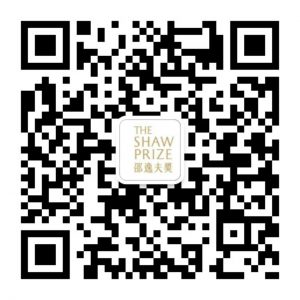以表彰他們所研發的光遺傳學,一項徹底改革了神經科學發展的技術。
2020年度邵逸夫生命科學與醫學獎平均頒予格羅・米森伯克 (Gero Miesenböck)、彼得・黑格曼 (Peter Hegemann)和格奧爾格 • 內格爾 (Georg Nagel),以表彰他們所研發的光遺傳學,一項徹底改革了神經科學發展的技術。格羅・米森伯克是英國牛津大學韋恩弗萊特生理學講座教授暨神經迴路與行為中心主任。彼得・黑格曼是德國柏林洪堡大學神經科學赫蒂講座教授暨生物物理系系主任。格奧爾格・內格爾是德國維爾茨堡大學 分子植物生理學教授。
要明白大腦的運作是一項艱巨的挑戰。 鑑於人類大腦中有許多個億的神經細胞,每個神經元可以與其他神經元進行數以千計的接觸,導致天文數字的突觸連接。感謝2020年度邵逸夫生命科學與醫學獎得獎者:牛津大學的格羅・米森伯克、柏林洪堡大學的彼得・黑格曼和維爾茨堡大學的格奧爾格・內格爾,他們近年在科學技術方面的發現提供了有效的工具,讓我們能夠追踪和控制實驗動物的神經網絡。
Understanding the brain is a daunting challenge. Each of the many billions of nerve cells in the human brain may make thousands of contacts with other neurons, resulting in an astronomical number of synaptic connections. The tools that allow us to trace and regulate neural networks in experimental animals have emerged in recent years thanks to the discoveries of our Shaw Life Science Awardees for 2020: Gero Miesenböck of Oxford University, Peter Hegemann of Humboldt University, Berlin, and Georg Nagel of the University of Würzburg.
Neuroscientists had long sought methods to control the activity of individual nerve cells in order to understand the networks in which they communicate and define the processes they control. Direct activation of nerve cells by physical or chemical means had been used for over two centuries, but the dream had been to modify nerve cells genetically so that electrical signals could be induced or suppressed remotely, allowing a less invasive and more precise means of controlling the function of neural networks in an intact organism. The first key breakthrough came in 2002 with the development of an optogenetic tool devised by Gero Miesenböck. Using a naturally light-responsive protein, rhodopsin, which serves as the pigment on which we rely for vision, his team inserted the Drosophila (fruitfly) genes necessary to express the light-responsive rhodopsin into a vertebrate nerve cell culture.
格羅・米森伯克 (Gero Miesenböck) 在1965年於上奧地利州出生,現為英國牛津大學韋恩弗萊特生理學講座教授暨神經迴路與行為中心主任。他於奧地利因斯布魯克大學取得博士學位後,於紐約紀念斯隆凱特琳研究所從事博士後研究(1992–1998),其後出任助理研究員和神經系統實驗室總監 (1999–2004)。同時,他亦在美國康奈爾大學神經科學、細胞生物和遺傳學擔任助理教授。在出任牛津大學教授之前,他擔任美國耶魯大學醫學院細胞生物、細胞與分子生理學副教授 (2004–2007)。格羅・米森伯克亦是奧地利科學院、德國科學院和英國皇家學會院士。
彼得・黑格曼 (Peter Hegemann) 在1954年於德國明斯特市出生,現為德國柏林洪堡大學神經科學赫蒂講座教授暨生物物理系系主任。1975年至1980年間於德國明斯特大學和慕尼黑大學修讀化學,並在1984年於德國馬克斯普朗克生物化學研究所取得博士學位。他曾於美國雪城大學任職博士後研究員 (1985–1986)。返回德國後,他於馬克斯普朗克生物化學研究所成立研究小組 (1986–1992),其後擔任德國雷根斯堡大學教授(1993–2004),並於柏林洪堡大學出任教授 (2005–) 和神經科學赫蒂講座教授 (2015–)。彼得・黑格曼是德國利奧波第那國家科學院院士。
